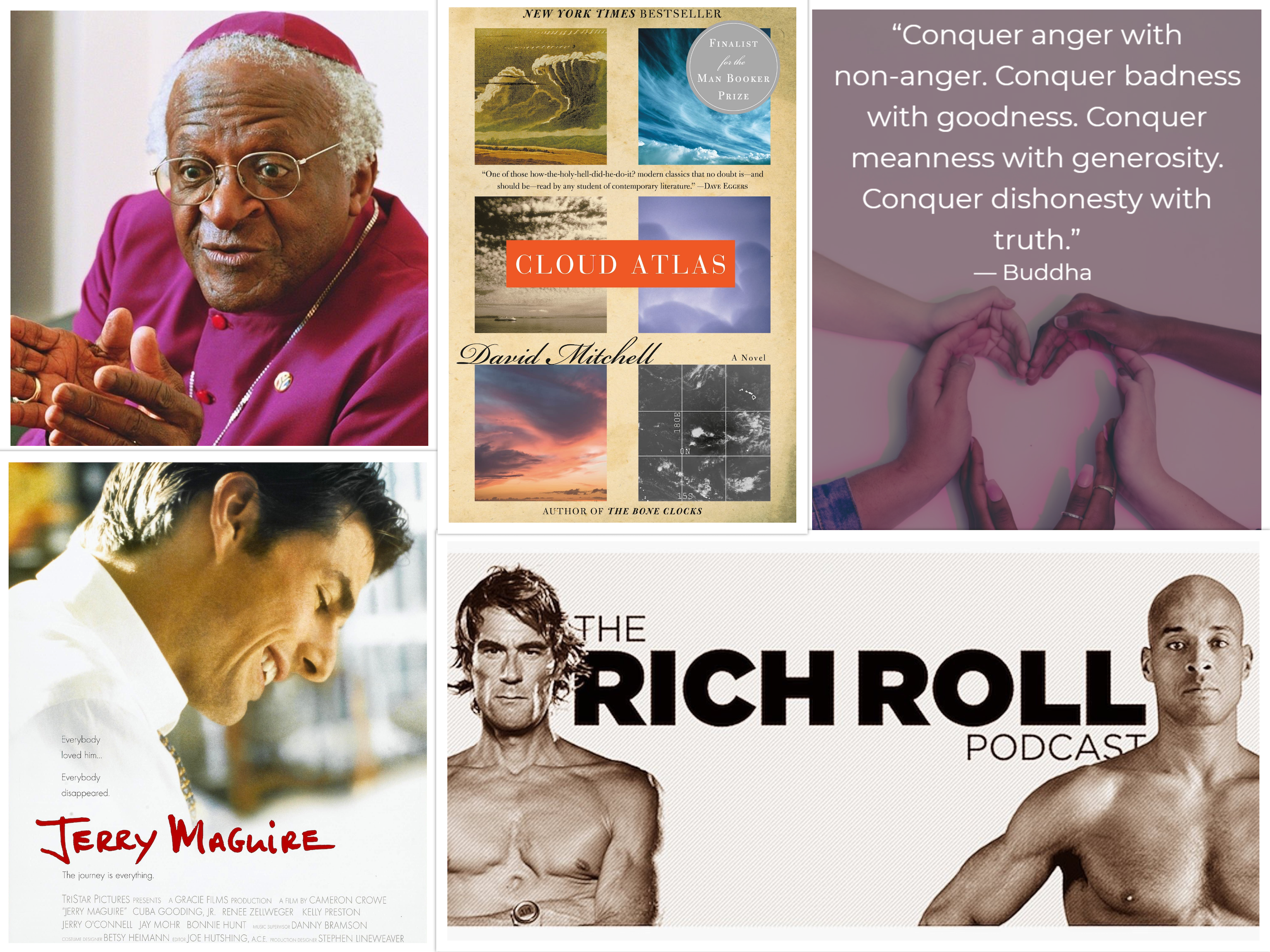Sunday Supplement #39 (February 6th, 2022)
Below is another Sunday Supplement with a quote worth sharing, a book worth reading, a movie worth watching, brainfood worth consuming, and a spiritual passage worth pondering.
I hope you take something away from these recommendations that enriches your week ahead!
Quote of the Week:
“Some people are always grumbling because roses have thorns; I am thankful that thorns have roses.”
– Alphonse Karr
Book of the Week:
Discipline Equals Freedom – Jocko Willink
Jocko Willink is a #1 New York Times bestselling author, host of a top-rated podcast, and co-founder of a multimillion-dollar leadership and management company.
Before Willink moved onto these areas in his life, he spent the majority of his adulthood as a Navy SEAL. In Discipline Equals Freedom, he describes the mental and physical disciplines he learned that allowed him to create freedom in his life.
The self-help book is written in a field manual style with short essays on the obstacles of achieving ownership of your life and how to overcome those barriers.
I came across Jocko Willink in a Tim Ferriss podcast episode and didn’t enjoy it much. Years later, I saw him in another interview and heard him talk about how the lessons he learned in recent years and being a father changed many of his attitudes toward things. This reflection made me curious to check out some of his work.
Discipline Equals Freedom might not be for everyone. There are a few elements of the book that I won’t incorporate into my life. However, there were nuggets of wisdom that stuck out brilliantly.
One of the chapters emphasized the power of saying “good” to an initially perceived negative situation so that you can find the positive or the lesson hidden in it. I’m working on including that in my everyday life.
Check Willink out to see if he’s someone you can vibe with, and if so, give his books or his podcast a chance.
Movie of the Week:
Flight follows an alcoholic airline pilot who saves almost every passenger and crew member on a malfunctioning aircraft destined to crash. A subsequent investigation into the accident beings to question if there was anything amiss with the state of the pilot.
Writer John Gatins worked on the script for ten years before it eventually got made. Denzel Washington starred as the pilot, and Robert Zemeckis expertly directed the movie with a surprisingly low budget of $31 million. Both Washington and Zemeckis took a massive pay cut to get the film made.
The movie received two Academy Award nominations, one for Best Actor in a Leading Role (Washington) and one for Best Writing – Original Screenplay (Gatins). Many good films came out in 2012, but Flight arguably should have received more Oscar recognition.
The film received some criticism for its portrayal of pilots and the physics of flying a plane, but it received many plaudits for its depiction of alcoholism.
Flight is rated R and has some intense scenes, but it tells a remarkable story in an extraordinary way.
Brainfood of the Week:
How Presence Helps You Face Life’s Challenges | Eckhart Tolle
This post marks the fourth time I’ve picked an Eckhart Tolle video for the week’s Sunday Supplement. Check out Sunday Supplement #7 if you want more background on Tolle and a recommendation for a long-form podcast interview with him.
The bestselling self-help author explains the exact benefit of being present when facing life’s challenges in this video.
Tolle discusses how external events can cause challenges, but a greater part of challenges are due to the unobserved mind. Your mind can create a narrative around external circumstances, and much unhappiness is caused by dysfunctional narratives.
When the unobserved mind takes over, you cannot separate what is actually happening from your interpretation of what is happening.
Tolle then discusses the awareness and alertness of being in situations and not judging them. You are just seeing what is happening and accepting it or deciding how you want to respond.
The video wraps up with some examples that show how everyday little challenges can help build your awareness.
Closing Spiritual Passage:
“Every misfortune is a blessing.”
– African Proverb
This African Proverb reminds me of the power of looking for different perspectives after experiencing situations that leave you disappointed, depressed, upset, or lost.
I don’t think emotions should be suppressed, but I believe after we’ve acknowledged our feelings and let them process, we can decide how we view what happened.
On one level, things will always be sad or cruel, but there is always a perspective where you can find a blessing in what happened.
Maybe after loss, it’s having an appreciation for those around you and forming closer bonds with those people. For anger, maybe it’s a chance for letting go. And with disappointment, it could be knowing you did your best the opportunity to try again or for something else.
I don’t always have the composure at the moment to find the blessing in misfortune, and sometimes it takes a while for me to pick myself up. However, quotes like these remind me of the opportunity to find the good in our lives.
Reframe something you perceived as unfavorable, and have a blessed week ahead!
4 Comments



